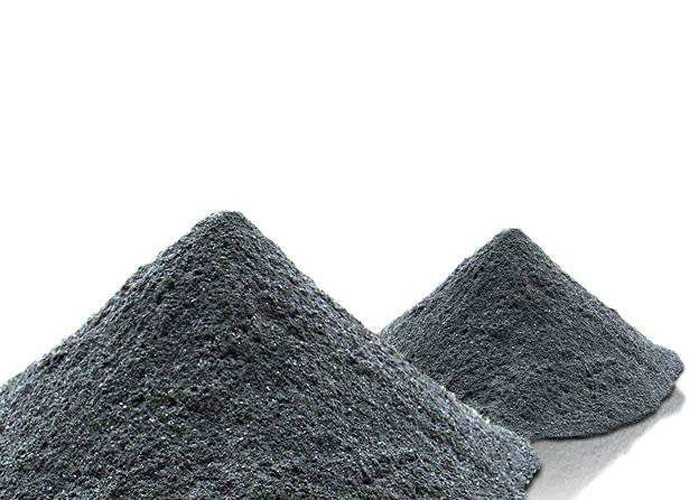First manufactured commercially around 1880, carbon disulfide is a volatile, flammable liquid primarily used as a building block of organic chemicals and as solvents in industrial and chemical processes. Carbon disulfide’s most important industrial application includes manufacture of regenerated cellulose and cellophane. It is also used as a feedstock for carbon tetrachloride production. In the food industry, carbon disulfide is used to protect fresh fruit from insects and fungus during shipping as well as in the solvent extraction of growth inhibitors. Other applications include cold vulcanization of rubber, synthesizing rubber accelerators, xanthates, and resins. It is also used in manufacture of pesticides and sulfur organic compounds for pharmaceutical.
Carbon Disulfide Market: Drivers and restraints
Carbon disulfide market’s growth is driven primarily by growing demand for cellulose and cellulosic fibers from various industries. With the increasing prices of basic raw materials, the use of carbon disulfide in the manufacture of mining chemicals (as flotation agents) is gaining in importance and has the highest forecast growth rate among the different applications. Growing demand for rayon and other cellulosic fibers from textile and fabric industry is expected to drive the Asian market for carbon disulfide.
Get Your 30% Discount Now! Request for Sample @ https://www.futuremarketinsights.com/reports/sample/rep-gb-1477
However, hazardous effects of carbon disulfide on human health are expected to inhibit the market growth. It is claimed to have neurologic effects including behavioral and neurophysiologic changes when exposed for longer time. Environmental agencies such as EPS, OSHA, AIHA ERPG, NIOSH have put stringent regulations on exposure and utilizations limits of carbon disulfide use in various products. Additionally, rayon is being substituted by lyocell that does not use carbon disulfide in synthesis. This substitution is expected to hamper the market growth of carbon disulfide.
Carbon Disulfide Market: Region wise outlook
Asia, including Japan, accounted for majority of world production and consumption of carbon disulfide. China is the most dominant consumer in this industry, followed by India. Western Europe also accounts for a significant proportion in global consumption of carbon disulfide. Stringent environmental regulations and shift of manufacturing bases to Asia Pacific region is causing slow growth in Europe. Demand for carbon disulfide from North America is submissive due to occupational health hazards caused by carbon disulfide. Hence, North America primarily imports carbon disulfide based chemicals and derivatives from Asia Pacific region.
Carbon Disulfide Market: Key market players
Some of the key players identified in the global carbon disulfide market are:
- Akzonobel
- GFS Chemicals Inc.
- Arkema Inc.
- Shanghai Baijin Chemical Group
- Avantor Materials
- ShanXi Jinxinghua Chemical Co. Ltd.
- Manass Jinyunli Chemical Co. Ltd.
- Jiangsu Jinshan Chemical Co. Ltd.
The research report presents a comprehensive assessment of the market and contains thoughtful insights, facts, historical data, and statistically supported and industry-validated market data. It also contains projections using a suitable set of assumptions and methodologies. The research report provides analysis and information according to market segments such as geography, technology and applications.
The report covers exhaustive analysis on:
- Market Segments
- Market Dynamics
- Market Size
- Supply & Demand
- Current Trends/Issues/Challenges
- Competition & Companies involved
- Technology
- Value Chain
Regional analysis includes
- North America (U.S., Canada)
- Latin America (Mexico. Brazil)
- Western Europe (Germany, Italy, France, U.K, Spain, Nordic countries, Belgium, Netherlands, Luxembourg)
- Eastern Europe (Poland, Russia)
- Asia Pacific (China, India, ASEAN, Australia & New Zealand)
- Japan
- Middle East and Africa (GCC, S. Africa, N. Africa)
Request for TOC @ https://www.futuremarketinsights.com/toc/rep-gb-1477
The report is a compilation of first-hand information, qualitative and quantitative assessment by industry analysts, inputs from industry experts and industry participants across the value chain. The report provides in-depth analysis of parent market trends, macro-economic indicators and governing factors along with market attractiveness as per segments. The report also maps the qualitative impact of various market factors on market segments and geographies.
Carbon Disulfide Market: Segmentation
The carbon disulfide market can be segmented based on applications as:
- Rubber
- Rayon
- Fibre
- Pharmaceutical
- Agriculture
- Food
- Others
Report Highlights:
- Detailed overview of parent market
- Changing market dynamics in the industry
- In-depth market segmentation
- Historical, current and projected market size in terms of volume and value
- Recent industry trends and developments
- Competitive landscape
- Strategies of key players and products offered
- Potential and niche segments, geographical regions exhibiting promising growth
- A neutral perspective on market performance
- Must-have information for market players to sustain and enhance their market footprint
Related Links:
https://zenwriting.net/y0xqm2ucep
https://nitrostrengthbuy.copiny.com/idea/details/id/107721
https://sharekaro.online/blogs/15348/Specialty-Silica-Market-Size-Share-Demand-Growth-by-2031
https://www.pickmemo.com/read-blog/115229
About FMI
Future Market Insights (ESOMAR certified market research organization and a member of Greater New York Chamber of Commerce) provides in-depth insights into governing factors elevating the demand in the market. It discloses opportunities that will favor the market growth in various segments on the basis of Source, Application, Sales Channel and End Use over the next 10-years.
Contact Us:
Future Market Insights Inc.
Christiana Corporate, 200 Continental Drive,
Suite 401, Newark, Delaware – 19713, USA
T: +1-845-579-5705
For Sales Enquiries: sales@futuremarketinsights.com
Browse latest Market Reports: https://www.futuremarketinsights.com/reports
LinkedIn| Twitter| Blogs
